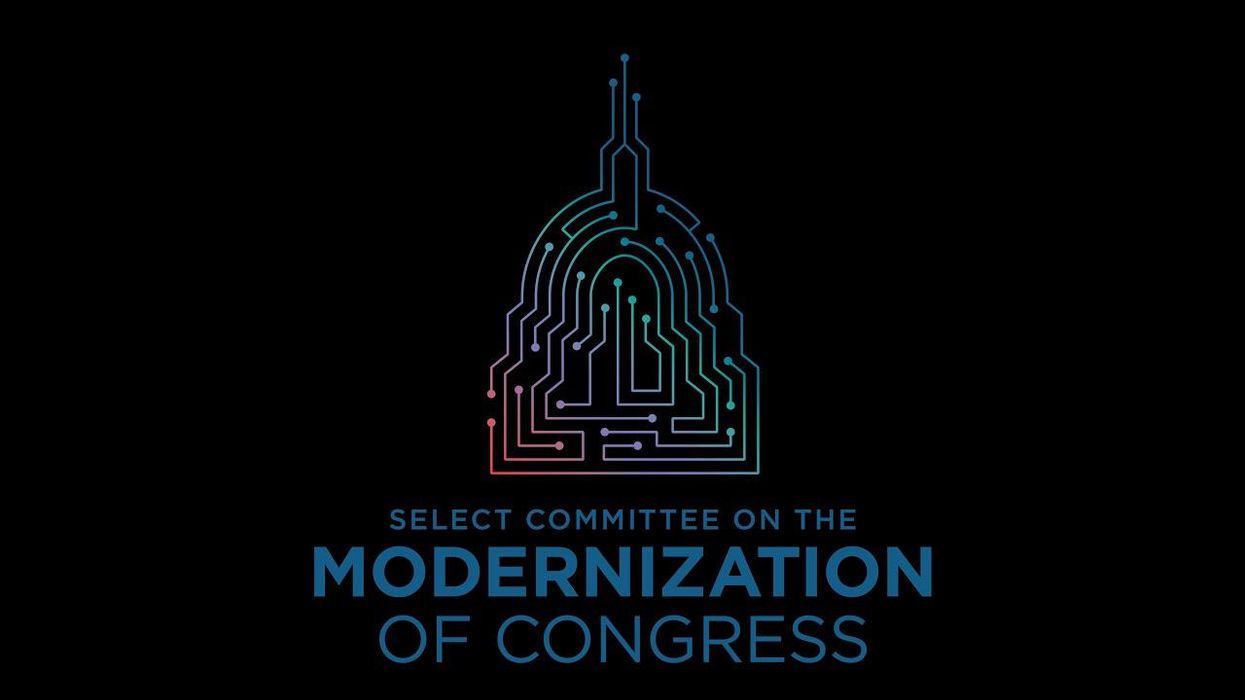The bipartisan House committee considering methods of improving congressional operations turned its lens on constituent services Thursday, seeking ways to better help Americans solve problems and navigate government bureaucracy.
Each lawmaker has staffers assigned to help constituents work through these problems, but because the offices all act independently without any central coordination, there is little opportunity to recognize and respond to systemic problems such as slow response times by federal agencies. The Selection Committee on the Modernization of Congress hopes to address that gap.
“This kind of data can inform Congress’s oversight activities and help us get ahead of problems before they do real damage,” said the committee’s chair, Rep. Derek Kilmer. “These kinds of customer feedback loops are pretty standard in pretty much every business, and there’s a reason for that. They help companies improve their customer service, which then improves customer trust in the business.”
Kilmer acknowledged that government and business are not the same, but there are lessons Congress can learn. “The American people expect competent customer service,” he said. "And I think we owe it to our constituents to meet, if not exceed, that standard."
break
The committee heard from three witnesses Thursday, each offering technology recommendations on how Congress can become more customer-friendly and centered around their experience developing higher standards of communication throughout all branches of government.
Anne Meeker, who managed constituent services for Rep. Seth Moulton before becoming director of strategic initiatives at the civic-engagement-oriented Popvox Foundation, suggested Congress build a more connected system between the House of Representatives’ central administrative office and caseworkers. She highlighted three issues that, if solved, would help local, regional and national offices better identify problems and open lines of communication that would lead to reform.
Firstly, she recommended a House-wide analytics system to identify and monitor casework trends. By categorizing and tagging individual case, Congress could identify state or regional problems and develop a better understanding of constituents’ needs.
She also proposed a plan to expand contact information for relevant agency staff to prevent cases from being lost and abandoned, a primary reason some constituent concerns are never resolved. Lastly, Meeker detailed an avenue for internal communication for caseworkers that would include in-person professional development, swapping of case studies and resources, and open access to the institutional knowledge required for good case management.
Meeker also noted the burnout that caseworkers often experience and recommended mental health visits and other support services to work through releveant obstacles. This system would hopefully strengthen the relationship between districts around the country and lead to an increase in bipartisan collaboration, she said.
Nina Olson, executive director of the Center for Taxpayer Rights, detailed her experience implementing measures to more effectively solve taxpayer issues with the IRS. As a national taxpayer advocate within the IRS, she reported taxpayer concerns and problems to Congress, sometimes leading to legislation addressing these issues.
Olson explained that she worked with Congress to address taxpayer concerns would be met bby establishing advocacy offices in every state, accompanied by an open line of communication so constituents could get directly in touch with their case advocate. In turn, Congress was able to use that IRS division to identify problem areas with the agency and develop internal guidance to prevent future problems from occurring. Additionally, Congress required the advocacy department to issue two reports annually, a vehicle to raise concerns about taxpayer problems and make direct recommendations to lawmakers concerning administrative or legislative decisions.
Matt Lira, who was a special assistant to the president for innovation and policy initiatives during the Trump administration as well as a senior advisor to House Minority Leader Kevin McCarthy, closed out the testimony, noting that casework can get lost in congressional shuffle.
“These [constituent] concerns are typically only one aspect of a broader portfolio rather than [Congress’] primary focus and responsibility,” Lira said. He emphasized the importance of modernizing Congress’ capabilities to meet the public’s expectations in the ever-evolving digital world, specifically through ensuring executive sponsorship of legislation, enhancing House-wide capabilities, and expanding the capacity of individual member offices.
Lira recommended that the House designate a senior official to coordinate improvements to House-wide constituent experiences as well as a point person to improve improve constituent services at agencies. Additionally, the House should publish a core set of digital tools for responding to the most common constituent services in order to remove extensive inefficiencies, give entry-level staff the opportunity to shift to higher-value work, and improve engagement between constituents and their representatives.
The hearing followed the recent release of the “State of the Congress 2022” report by the Congressional Management Foundation and the Partnership for Public Service. The report found that senior congressional staffers believe solving constituents’ problems should be the primary goal of members of Congress; however, most say Congress isn’t up to the task.


















 Senate Committee on Commerce, Science, and Transportation ranking member Sen. Maria Cantwell (D-WA) (R) questions witnesses during a hearing in the Russell Senate Office Building on Capitol Hill on February 10, 2026 in Washington, DC. The hearing explored the proposed $3.5 billion acquisition of Tegna Inc. by Nexstar Media Group, which would create the largest regional TV station operator in the United States. (Photo by Chip Somodevilla/Getty Images)
Senate Committee on Commerce, Science, and Transportation ranking member Sen. Maria Cantwell (D-WA) (R) questions witnesses during a hearing in the Russell Senate Office Building on Capitol Hill on February 10, 2026 in Washington, DC. The hearing explored the proposed $3.5 billion acquisition of Tegna Inc. by Nexstar Media Group, which would create the largest regional TV station operator in the United States. (Photo by Chip Somodevilla/Getty Images)
